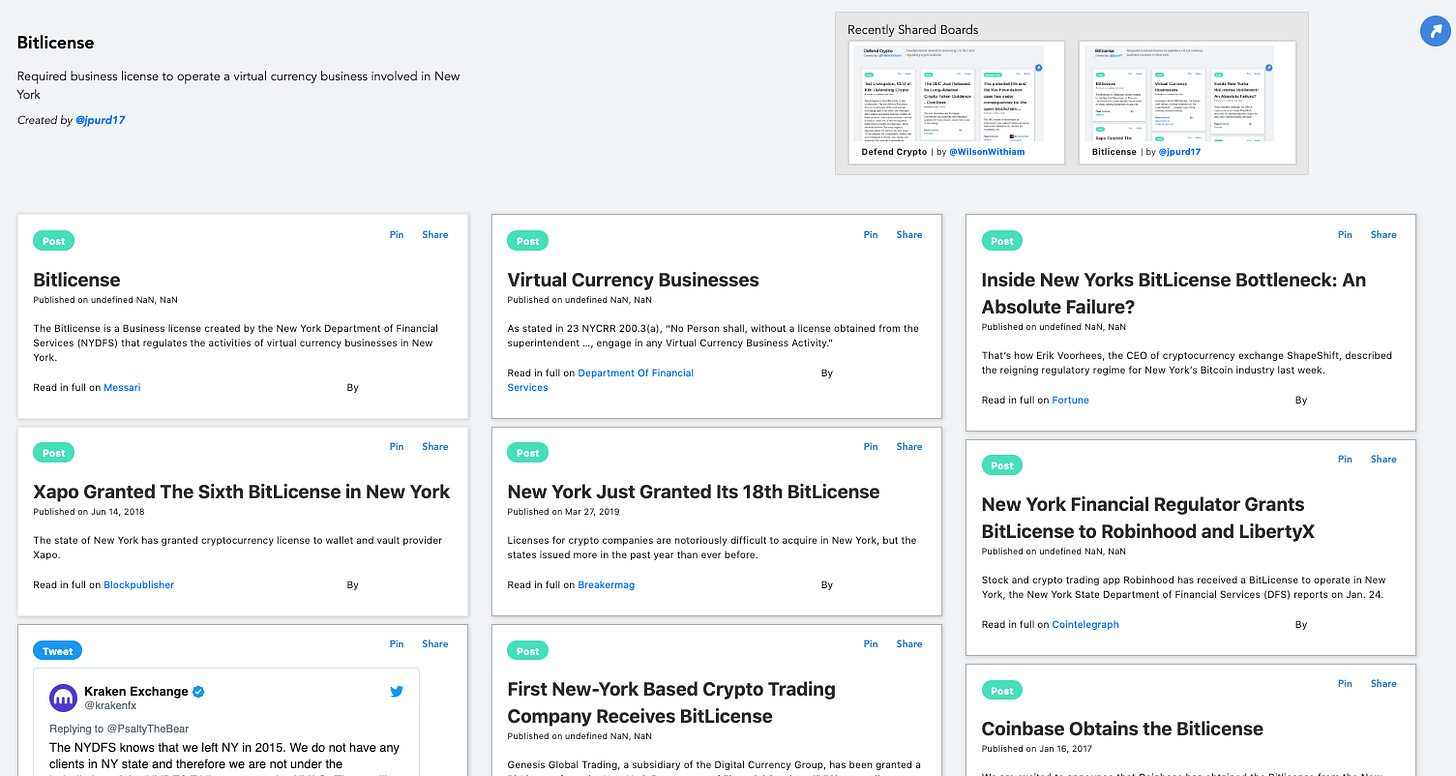Making Crypto Illegal
crypto vs. the state picks up steam

Your daily snapshot from our OnChainFX markets dashboard.
BRB, updating my bio to “ex-NBA analyst.” (Gotta admit. I was close.)
I digress. On to the crypto stuff…
Crypto vs. State
I’ve been feeling more uneasy recently about where we are in the macro economic and political cycle. As western systems degrade, easy money continues to proliferate from central banks, and the surveillance panopticon kicks into overdrive, crypto is starting to feel like a powerful tool against state mismanagement (vs. a purely speculative bet).
That is…obviously subversive.
As much as that can feel like an exciting validation of a six year obsession, it’s also pretty dystopian. Bitcoin to $1,000,000 will feel like a pyrrhic victory indeed if it means the dollar has collapsed as a global reserve (in which case bitcoin’s price will be effectively “infinity”) and massive social unrest ensues.
Authorities seem to be waking up to the real threat now that bitcoin hasn’t died (again), and the ICO hangover is clearing up. Most “reformers” will call it a security issue (because that’s what you do when you curtail individual freedoms), but no matter the justifications used, it seems we’re entering more hostile territory these days.
Most of the industry may still seem content to argue with the SEC over gray line tests regarding “sufficient decentralization” of their tokens and market manipulation on foreign exchanges, but the real power struggle with the state is more fundamental:
Will crypto currencies finally get “banned”?
As we wrote about last week, the new FATF “travel rule” recommendations would likely force crypto exchanges into sharing much more personal user information.*** It looks like these will actually go through.
Although country by country implementation could take years, at its strictest, this could one day lead to a bifurcation of bitcoin addresses into white lists and black lists…breaking bitcoin’s fungibility in practice if not in technical terms.
I wrote back in my year-opening post that “privacy upgrades will cause headaches and pushback from regulated exchanges and wallets. Some of the new tech is so good it might hurt compliance efforts.” The race to private-by-default transactions is critical.
Some of the bans have already taken effect. Others seem to be in process.
A year ago, the Japanese Financial Security Agency (FSA) banned cryptocurrencies like Dash, Monero, and ZCash that provided “a sufficient degree of anonymity” to users. India is now allegedly preparing a strict ban on crypto usage that would include potential jail sentences for those “who “mine, generate, hold, sell, transfer, dispose, issue or deal in cryptocurrencies directly or indirectly.” A US Congressman introduced a bill last month that would outlaw crypto in order to “nip this in the bud.” The reasoning was cogent: crypto aims to strip the power of seigniorage from the state.
It seems national security and counter-terrorism are no longer top of mind for the state, but rather “we’d like to not lose our ability to print money.”
The crypto industry honestly cannot yet handle the intense resistance that appears on the horizon. Yet perhaps our leverage will change during the next crypto bull cycle, assuming more institutions enter the fray, join the industry’s net promoter ranks, and help ward off overreach from the most overzealous regulators.
Ironically, crypto’s best allies are likely to be the giants who’ve been spending real time and energy in the market recently: Facebook (new stablecoin), Apple (the “CryptoKit”), and Microsoft. (“Crypto FAM?”)
Who would have thought the crypto ecosystem would potentially get bailed out by our tech overlords’ lobbying efforts?
Strange, but welcome, bedfellows in the fight against the state.
-TBI
***Had some great feedback from Arca co-founder and chief legal officer Phil Liu regarding our FATF post on Thursday, and what it actually means for VASPs (virtual asset service providers).
“1) I am not certain this FATF proposal directly applies to private funds but if it did (e.g., if certain funds were deemed to be a custodian because they self-custody assets), these funds would need to potentially collect (and report) information on who they bought the digital assets from. This would likely be outsourced to a fund admin who would handle the operational aspects of this.
2) Even if it did not apply to fund managers as an adviser to a private fund, it could have implications on service providers such as custodians (e.g., Fidelity) and potentially administrators, as they would need to track originator and beneficiary information, and otherwise comply with travel rule. Third party custodians are clearly caught but I am not certain that administrators are caught however, as the proposal as to what is a virtual asset service provider (VASP) is very generic and specific rules would need to be adopted by each country. Fidelity already does this within their regular business so I don't think there's a heavy lift there for them to comply with FATF travel rule proposals.
3) Regarding exchanges, legitimate ones should be collecting all this KYC information anyway on everyone that uses their platform so I believe this will not be a problem for them. Exchanges that don't really follow the rules and are operating "in the gray" will face additional scrutiny and enforcement from regulators; regulators will be under pressure to shut them down even more so.
4) There is an off chance a private fund that self-custodies may be deemed to be a VASP but I think that's unlikely. If it were, there may be some operational hurdles but I don't think it'd be fatal.
5) I don't think hardware wallet providers such as Trezor and Nano, or software wallet providers like Atomic, are intended to be VASPs. However, if the wallet offers an exchange function (which many do), then they could be VASPs in which case the same onerous KYC/travel rule issues would apply.
Takeaway on this is that it'll be added regulatory pressure on exchanges and businesses operating in the gray (including DEXs) that don't comply strictly with KYC requirements. Legitimate businesses, including private funds, are unlikely to be substantially affected except that to the extent these funds utilize pressured exchanges, it'll be an additional risk factor to be considered. This proposal is going to force illegitimate/gray exchanges to become legit or maybe go out of business.
Truthfully, this isn't all very exciting. People in crypto like to make a big deal about giving personally identifiable information to the government but I don't see a whole lot of disruption for legitimate players if the proposal is enacted. To the extent some exchanges go away because they cannot or choose not to comply with the new rules (which are really just existing rules applied to virtual currencies), then it'll affect asset managers and investors who utilize some of those exchanges to gain access. Until specific rules are adopted, it's wait and see.”
P.S. Share. Subscribe. Spread the love. Tweet at me or Messari for requests, feedback, comments, or questions.
Best of the Boards
This week we are highlighting some of the best user generated boards from the past week. Build your own, tweet it, and tag us us for a chance to be featured next week!
This board is a place for 2019s crypto-specific papers to amass and be discovered by those hungry to learn about the cutting-edge technology promising to propel forward this nascent industry we all know and love. In this board, you’ll come across both academic- and community-based papers.

For crypto companies that want to operate in one of the largest U.S. markets the BitLicense is a necessity. This board will help you learn more about this controversial piece of regulation required to offer crypto services in New York State.

Delegated Proof-of-Stake (DPoS) - @messaricrypto
We put together this board to highlight some additional learning resources based on our Delegated Proof-of-Stake (DPoS) resource page. Make sure you read them both to get a full introduction to what DPoS is and how it works.

Did I miss something?
Send me the link, your twitter handle and your best imitation compression algorithm write up. If I like it, I’ll include your bit next issue (with attribution).
Should your colleagues read daily? We now offer discounts for corporate access. Email us, and we’ll onboard your whole team.


